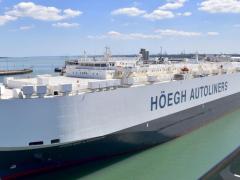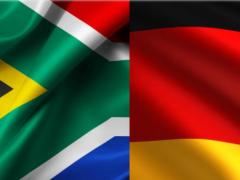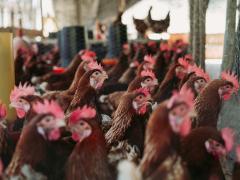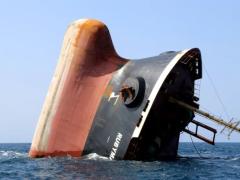The harbours of Port Elizabeth and East London are being used as the lynchpins for a number of development initiatives planned for the Eastern Cape.
The province's two ports make it an extremely attractive area for investment, says co-ordinator for special projects in the Department of Trade and Industry (DTI), Dr Paul Jourdan. As the South African economy goes from one with an inward focus to a global economy, it has become vital for manufacturers to be situated near a port, he says.
One example of the shift away from Gauteng as the primary market for South African goods is Iscor's steel plant at Vanderbijlpark. Iscor is the lowest marginal cost producer in the Western world if you look at the cost of the steel at the gate. However, this advantage is eliminated by the cost of transport to the coast, (R188/ton), and from the coast to overseas markets (R166/ton). Iscor's decision to move its production to Richards Bay will once again make it a globally competitive producer, falling below the average price for steel produced outside the former Soviet Union and China. Development in the province will centre around two Spatial Development Initiatives (SDIs).
Based on the highly successful Maputo corridor development, the SDIs have been identified by central and provincial government as high-potential and high-priority development areas. The Eastern Cape has been singled out because of the huge development needs in the province, says Dr Jourdan.
He says the DTI is working with local government to attract big companies to the Eastern Cape because major developments are seen as a catalyst for the growth of small business. The objective of the SDI concept is to create sustainable jobs, says Dr Jourdan. Internationally, it is accepted that it is small business, rather than big business, that creates the most jobs. Giant anchor projects, such as road construction, port development, and building and industrial schemes create both direct jobs and entrepreneurial opportunities, says Eastern Cape Economic Affairs MEC Enoch Godongwana.
Major capital developments, such as manufacturing plants, mineral refineries, ports and harbours consume a vast quantity of services and materials provided by suppliers, many of which are small businesses, he says.
Dr Jourdan says government favours private public partnerships (PPPs), in terms of which a private sector company or consortium builds and operates infrastructure like a toll road from Port Edward down the Wild Coast, or the proposed Coega port, for a fixed period of time. After that it is transferred to government ownership and control. This approach is being used to finance and build the roads and infrastructure for the Maputo corridor running from Gauteng to the Mozambican port of Maputo. Government, says Dr Jourdan, simply does not have the funds to pay for the infrastructural development itself.
The Department of Trade and Industry has to concentrate the limited state resources on the provision of hard infrastructure in areas with the highest growth potential to leverage in maximum private sector investment, he told a conference in Port Elizabeth recently.
The government has launched a PR campaign to encourage small business to get involved in the SDI and industrial zone developments. Deputy minister of Trade and Industry, Phumzile Mlambo Ngcuka says an example of how small business opportunities will be created is the Coega project, which lies at the southern end of the Fish River SDI.
We estimate that at least 15% of the value of the large infrastructure contracts can be awarded to SMMEs and that the downstream benefits (providing services after the factories have been built) could amount to as much as 10 to 20% of the investments made by the anchor projects. The four projects surrounding the Coega development represent an estimated R3,4-bn. SMMEs could, therefore, be in line for a R400-m to R600-m boost from the development of the Coega port and the Industrial Development Zone, she says.
Business in the Eastern Cape will be given an opportunity to present their ideas at an international investment conference planned for East London on November 7 this year. It is expected that President Nelson Mandela will open the conference. The Centre for Marketing and Investment in the Eastern Cape (Cimec) is already setting up an electronic database of all proposed projects in the province. The database will enable potential investors to quickly identify projects and partners in the province, says acting Cimec head Don Maclean. Cimec's number is 0431 436013.
By Ed Richardson












